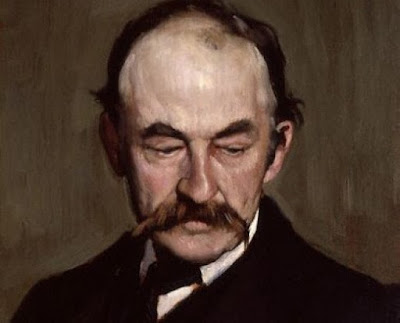DRAMA PLAYHOUSE - THE INCREDIBLE ROBERT BALDICK (1972)
DOCTOR WHO - THE ANDROID INVASION (1975)
"He cannot resist the inexplicable; almost any happening qualifies for his interest so long as it is out of the ordinary." Terry Nation's stab at DRAMA PLAYHOUSE created Robert Baldick.
FORMING part of the third season of DRAMA PLAYHOUSE - the BBC's launching pad for potential series - THE INCREDIBLE ROBERT BALDICK: NEVER COME NIGHT was Terry Nation's first completed work for the Corporation's drama department since his six episodes of DOCTOR WHO - THE DALEKS' MASTER PLAN in 1965. Directed by Cyril Coke, this never-commissioned pilot is a Victorian Gothic with the titular Baldick (Robert Hardy) an eccentric detective/scientist who owns his own steam locomotive and has a pet owl. A fusion of Sherlock Holmes and Fox Mulder, Hardy plays Baldick with suffocating gusto, but there are too many themes in too short a running time to create a satisfying whole. Elements of Victorian literature (loyal assistants, windswept nights) and Gothic fiction (secrets in the woods, ruined abbey, failed exorcism, unruly villagers) are further complicated by the alien artefact sting, a payoff that is not just a narrative anomaly but an unnecessary Quatermass-like "resolution".
Squire Aldington (Reginald Marsh) and Reverend Elmstead (James Cossins) discover the corpse of a young woman in the reputedly haunted ruins of Duvel Woods Abbey. Elmstead visits friend Robert Baldick, in the hope that the unconventional sleuth will assist in this latest of murders to effect Boardington village ("local legend has it that the deaths go back into prehistory.") Aided by his valet Thomas Wingham (Julian Holloway) and burly gamekeeper Caleb Selling (John Rhys-Davies), Baldick delves into local parish records, and discovers that the Abbey has long been associated with human sacrifice. Excavating deeper within the crypt, fear and anxiety grips the group; Thomas is pulled into a chamber below, which is full of human bones and pervaded by a sense of absolute evil. Baldick is convinced that the Abbey contains a distillation of the terrors and phobias of all the people who have visited the enclose, and later studies a strange object he retrieved from the floor: a small metal box containing intricate electrics and runic symbols.
DOCTOR WHO - THE ANDROID INVASION was the second of two non-Dalek scripts Terry Nation turned in for the series (the first was THE KEYS OF MARINUS from 1964).
Although beautifully shot and well received, the programme suffered from scheduling problems which was triggered by a behind-the-scenes tussle over the name of the character. BALDICK was originally to be shown on 6th September, but in the immediate aftermath of the Munich Olympic massacre, it was removed at the last moment and eventually aired at a later than usual time slot on 2nd October. However, the original airdate of 23rd August was quashed by legal ambiguities between the BBC and Robert Baldick Junior, a PhD student whose father Dr Robert Baldick - an Oxford French literature academic - had granted Nation permission to use his name. Unfortunately Baldick Senior died before the broadcast date, and head of drama serials Andrew Osborn eventually conceded that - although it was too late to change the pilot - the name would change if the venture would develop.
For DOCTOR WHO - THE ANDROID INVASION, Nation invented the rhinoceros-like Kraals, who go to finite trouble to create an exact replica of an English village and populate it with synthetic organisms to rehearse an invasion of Earth. Chief Kraal scientist Styggron (Martin Friend) also intends to release a deadly virus to aid resistance, but this is ultimately as unnecessarily convoluted as BALDICK. Themes of duplication and mind-draining are lost in a number of silly plot elements, most of all duping astronaut Crayford (Milton Johns) in thinking he has lost an eye by simply giving him an eye-patch. On the surface this is a minor entry in the Time Lord's greater Gothic scheme of the mid-70's, but it does cover interrogation - The Doctor (Tom Baker)’s subjection to the Analysis Machine - and 1950’s Sci-Fi paranoia; Crayton may be a critical laughing stock, but is a man in identifiable flux.





